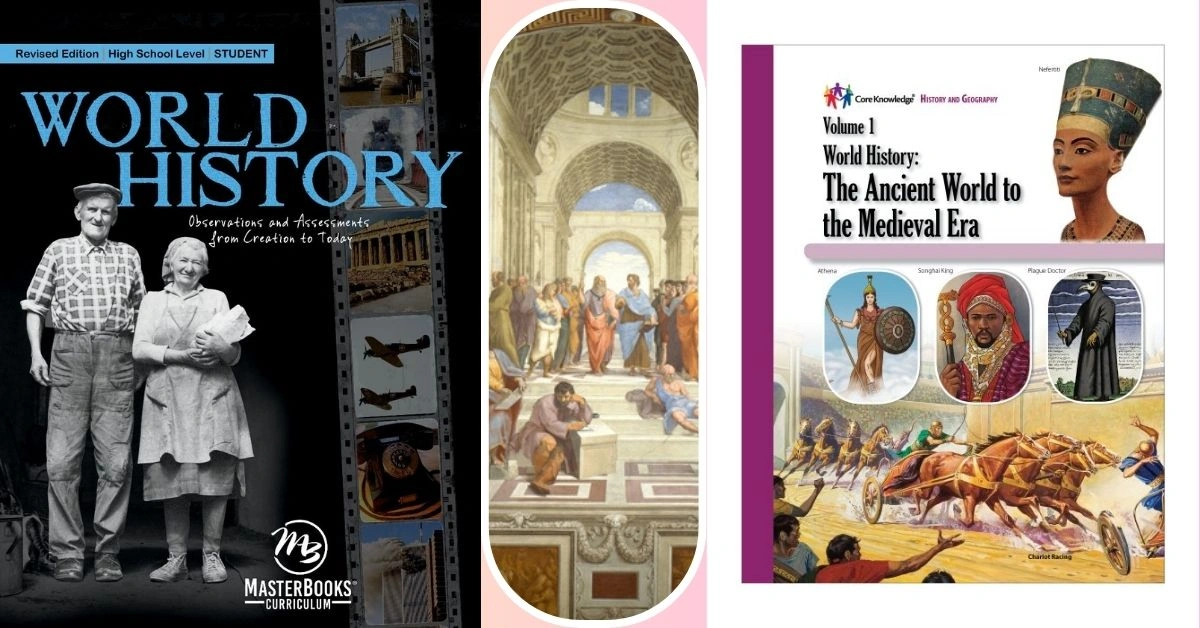Introduction to the World History Study Guide
Are you a 12th grader gearing up for your world history exam? If so, you’re in the right place! Understanding our past is crucial not just for acing tests but also for grasping the complexities of today’s world. A solid foundation in world history can empower you to think critically about current events and societal trends. But diving into centuries of dates, events, and cultures can feel overwhelming. That’s where a comprehensive study guide comes into play.
This World History Study Guide for 12th Graders PDF will serve as your roadmap through time. Packed with essential resources and tips tailored specifically to help high school seniors succeed, this guide aims to make your studying experience more effective and enjoyable. Let’s embark on this journey together!
Why is it Important to Study World History in 12th Grade?
Studying world history in 12th grade offers students a critical perspective on the past. It reveals how previous events shape our current society and future possibilities. Understanding these developments fosters informed citizenship.
Additionally, world history encourages cultural awareness. By exploring diverse histories, students learn to appreciate different viewpoints and traditions. This knowledge promotes empathy in an increasingly globalized world.
Moreover, the analytical skills gained from this subject are invaluable. Students develop their ability to evaluate sources, analyze arguments, and recognize bias—essential tools for any academic or professional path.
Many colleges require a solid foundation in social studies. A well-rounded understanding of world history can enhance college applications and prepare students for higher-level discussions in various fields of study.
Essential Resources for Studying World History
When diving into world history, having the right resources is crucial. Textbooks provide foundational knowledge and help clarify key concepts. Look for ones that are well-reviewed and aligned with your curriculum.
Online platforms like Khan Academy offer free courses and materials. Their videos break down complex topics, making them easier to grasp.
Don’t overlook documentaries and historical films. They can bring history to life in ways textbooks sometimes can’t.
Utilizing academic journals or articles enhances understanding through scholarly perspectives. Websites like JSTOR have a wealth of information at your fingertips.
Engage with interactive timelines and maps available on various educational sites. These tools can visualize events, helping you connect dots between different periods of history.
Consider study groups or forums where students share insights and resources. Collaboration often leads to deeper learning experiences.
Tips for Using the Study Guide Effectively
Using a study guide effectively can make all the difference in your preparation. Start by breaking down the material into manageable sections. This prevents overwhelm and helps you digest information more easily.
Set specific goals for each study session. Focus on one chapter or theme at a time, allowing for deeper understanding.
Incorporate different learning methods. Use flashcards for key terms, timelines to visualize events, and discussions with peers to reinforce concepts.
Take regular breaks during your study sessions. Short pauses can boost focus and retention.
Try teaching what you’ve learned to someone else; it’s an excellent way to identify gaps in your knowledge while reinforcing what you know well.
Keep track of your progress within the guide. Acknowledging achievements can motivate you as exams approach and help maintain a positive mindset throughout the studying process.
Sample Study Schedule
Creating a solid study schedule is crucial for mastering world history. Begin by assessing your current knowledge and identifying weak areas. This allows you to allocate time effectively.
Start with short, focused sessions of about 30-45 minutes daily. Break topics into manageable chunks, such as ancient civilizations one day and modern history the next.
Incorporate various resources: textbooks, online articles, and videos to keep things interesting. Make sure to include revision days in your schedule; these can be dedicated to practice tests or reviewing flashcards.
Don’t forget breaks! A quick walk or a few minutes of stretching can enhance focus when you return to studying. Plan for regular check-ins every week to track progress and adjust the schedule if needed.
Consistency is key—stick with it and adapt as necessary for optimal results in understanding world history concepts better.
Commonly Asked Questions about World History
Many students often wonder what events are most crucial in world history. Key moments include the fall of empires, revolutions, and significant treaties.
Another frequent question is about study methods. Techniques such as timelines, flashcards, and summarizing chapters can enhance retention.
Some also ask how to connect historical events with today’s issues. Understanding patterns in human behavior helps illustrate these connections effectively.
Students might be curious about the best resources available for studying. Online platforms offer interactive maps while local libraries provide essential textbooks and primary sources.
There’s a common concern regarding exam formats. Familiarity with multiple-choice questions versus essay prompts can greatly affect preparation strategies.
Conclusion: Preparing for Success on the Exam
Preparing for the world history exam can feel overwhelming. However, with the right resources and strategies, you can navigate this challenging subject effectively. The World History Study Guide for 12th Graders PDF is an invaluable tool that consolidates essential information in one place.
By leveraging recommended textbooks, online resources, and practice exams, you’ll deepen your understanding of key concepts and events. Use study techniques that resonate with you—whether it’s flashcards or group discussions—to reinforce your learning.
Creating a study schedule will help ensure you’re covering all necessary materials before exam day. Remember to take breaks and manage stress effectively; balance is crucial during this busy time.
As you prepare, keep in mind that success on the exam reflects not just what you’ve memorized but how well you understand historical contexts and connections. Embrace the journey of studying world history as an opportunity to gain insight into our shared past—a foundation upon which future generations will build their knowledge.
Learn more about how digital tools are transforming industries like insurance in our article on the digital impact on insurance.
